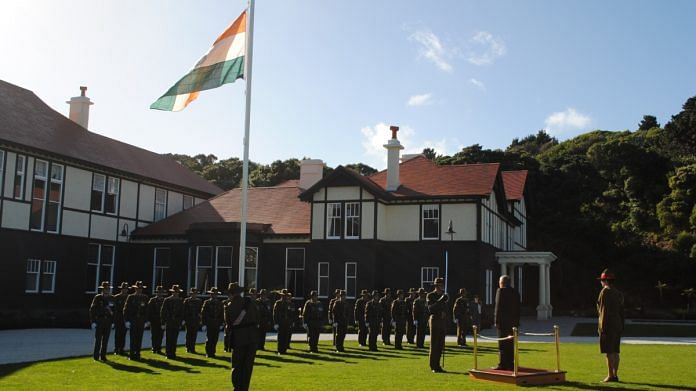New Delhi: The Indian High Commission in New Zealand reportedly became the centre of a major spy operation, not once but twice.
As part of the covert operation, code-named ‘Operation Dunnage’, the Indian mission in Wellington was raided in 1989 and 1991 as the UK wanted access to the commission’s code books.
According to a report published Wednesday by Radio New Zealand or RNZ, ‘Operation Dunnage’ was conducted jointly by New Zealand’s spy agency, Security Intelligence Service (SIS), and the UK’s MI6.
The main objective behind the operation, according to the RNZ’s report, was to take photographs of the code books that were used to encrypt communications. The photos were subsequently sent to Britain so that the communication going on between Indian government officials and its diplomats could be deciphered.
“Thousands of photographs containing the codes were sent back to the UK so that Britain’s foreign intelligence service could decipher the communications of Indian government officials and diplomats,” the report stated.
The report also quoted New Zealand’s former prime minister Sir Geoffrey Palmer, who denied any such operation or raid during his tenure.
“If it was at the time I was prime minister, I most certainly should have been,” Palmer, who was the PM from August 1989 until September 1990, was quoted as saying in the report.
ThePrint reached the Ministry of External Affairs via text for a comment, but there was no response until the time of publishing this report.
Also read: New Zealand rebrands as a safe haven in Covid world as it works on rebuilding economy
Motive behind operation not clear
The report further stated a similar operation was also conducted at the Iranian embassy based in New Zealand.
Palmer denied this too, adding if the raids were carried out, they were “likely unlawful”.
“None of that could be done under the existing law it seems to me. Quite apart from the breaches of the Vienna Convention, you’ve got breaches of New Zealand law there, I would have thought, you’ve got breaches of human rights,” he said.
According to the report, the actual motive behind the operation could not be ascertained.
“India, a nuclear power since the mid-1970s, suffered intense political unrest in the late 1980s and early 1990s, which included the 1991 assassination of former prime minister Rajiv Gandhi by Sri Lanka’s Tamil Tigers,” reported the RNZ.
However, a source mentioned in the report told RNZ he was “concerned about the nature of the work the SIS carried out for its Five Eyes partners”.
The Five Eyes is an intelligence alliance comprising Australia, Canada, New Zealand, the United Kingdom and the United States.
“The source, who has had close dealings with the intelligence agencies, said New Zealand came under pressure from its Five Eyes partners, especially the US and Australia, to do their dirty work. He felt New Zealand sometimes risked its international reputation by doing things that largely benefited Five Eyes partners,” the report said.
Also read: Filmmakers are returning to shoot in New Zealand as it emerges as Covid-free haven



